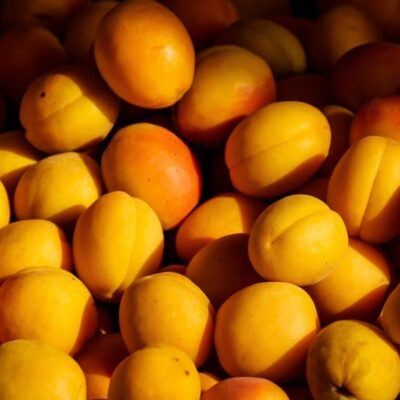Yes, dogs can eat apricots safely. The only problem with apricots is the pit which can be toxic and is important to remove before you serve them to your dog. Apricots in small quantities are good for your dog and make an excellent sweet snack.

Safe: This food is generally considered safe by the veterinary community. Dogs can eat this food sometimes or in small amounts but contains little to no nutritional value.
| Food Safety | Safe in small amounts |
|---|---|
| Nutritional Value | Good source of dietary fiber, vitamins A and C, soluble fiber, and potassium |
| Potential Risks | Choking hazard, digestive issues |
How Many Apricots Can Dogs Safely Eat?
Half an apricot is enough for a small dog, while a large dog can eat one safely.
Remember, 85 to 90 percent of nutrition should be sourced from your dog’s main food. Only 10 percent of the diet should comprise snacks and treats.
This is why serving is different for every dog breed and size.
Signs Your Dog Ate Too Many Apricots
When the delicious aroma of apricots hits, it can be hard for your doggy to resist them, thanks to their powerful nose. If your naughty little fur monster has eaten too many apricots, you should look out for signs they are in distress because of abdominal pain. They may also experience diarrhea after eating too many apricots.
Frequently Asked Questions
-
Yes, dogs can eat dried apricots. However, some dried apricots can have added sugar, which can harm dogs.
-
To feed your dog apricots, remove the stems or leaves first. Wash the fruit thoroughly and cut it into small pieces, making it easy to eat. Remember to remove the pit or the stone because your little doggy can choke on it.
-
No, jelly has high sugar content and is best to be avoided. A lick or two might not harm your dog, but it has no nutritional benefits, and the added sugar can cause multiple health problems.







